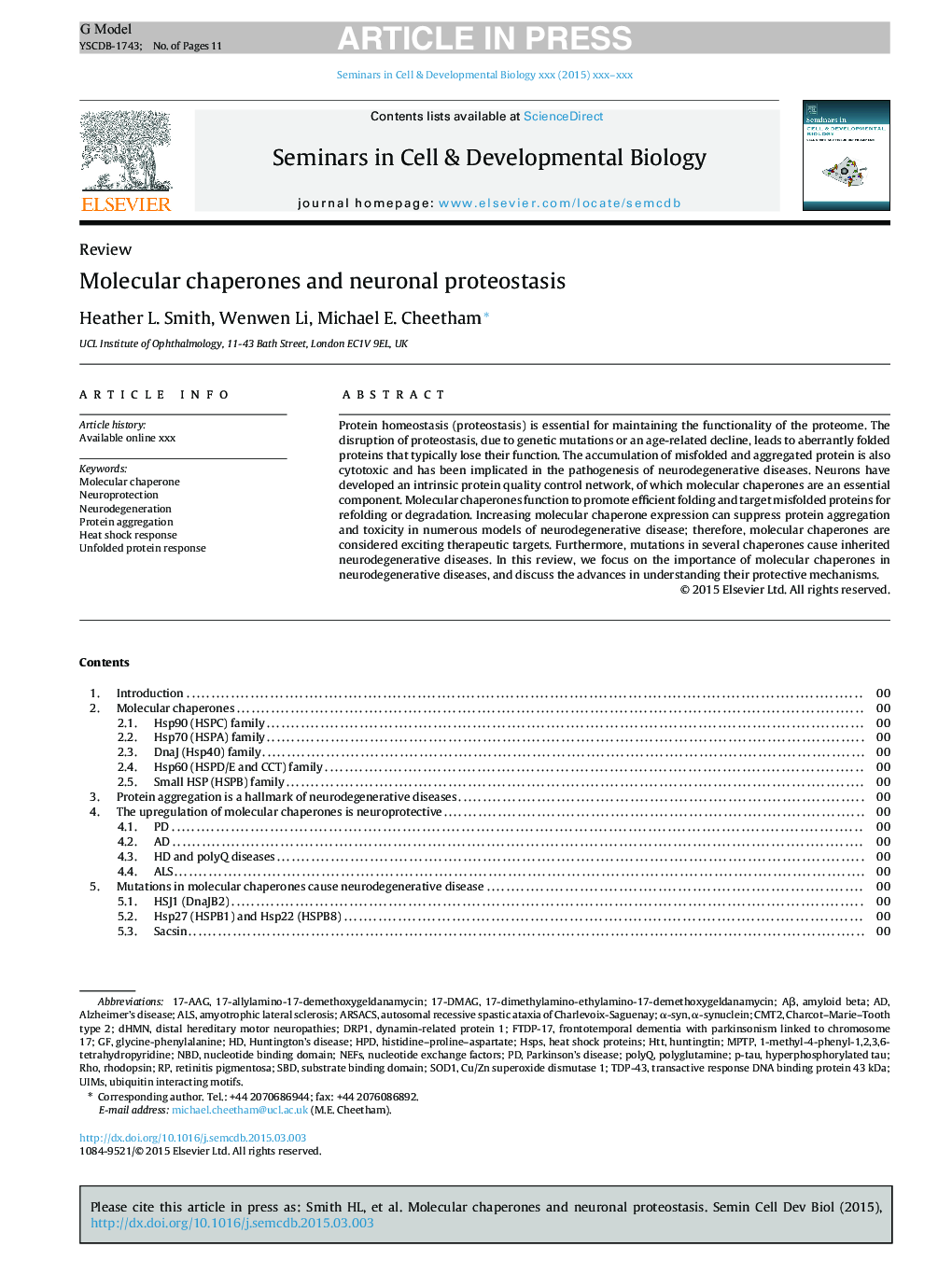| Article ID | Journal | Published Year | Pages | File Type |
|---|---|---|---|---|
| 8480472 | Seminars in Cell & Developmental Biology | 2015 | 11 Pages |
Abstract
Protein homeostasis (proteostasis) is essential for maintaining the functionality of the proteome. The disruption of proteostasis, due to genetic mutations or an age-related decline, leads to aberrantly folded proteins that typically lose their function. The accumulation of misfolded and aggregated protein is also cytotoxic and has been implicated in the pathogenesis of neurodegenerative diseases. Neurons have developed an intrinsic protein quality control network, of which molecular chaperones are an essential component. Molecular chaperones function to promote efficient folding and target misfolded proteins for refolding or degradation. Increasing molecular chaperone expression can suppress protein aggregation and toxicity in numerous models of neurodegenerative disease; therefore, molecular chaperones are considered exciting therapeutic targets. Furthermore, mutations in several chaperones cause inherited neurodegenerative diseases. In this review, we focus on the importance of molecular chaperones in neurodegenerative diseases, and discuss the advances in understanding their protective mechanisms.
Keywords
17-AAGUIMsCu/Zn superoxide dismutase 1dHMNCMT2NBDARSACSHPDRetinitis pigmentosahttTDP-43Drp1FTDP-17PolyQSOD1HSPsAβSBDMPTPα-Syn1-methyl-4-phenyl-1,2,3,6-tetrahydropyridine17-allylamino-17-demethoxygeldanamycin17-DMAGP-Tauα-synucleinamyotrophic lateral sclerosisamyloid betaAlzheimer's diseaseALSHuntington's diseaseParkinson's diseaseHyperphosphorylated tauprotein aggregationNeurodegenerationsubstrate binding domainnucleotide binding domainRhoRhodopsinfrontotemporal dementia with Parkinsonism linked to chromosome 17NeuroprotectionHuntingtinHeat shock responseUnfolded protein responsedynamin-related protein 1Heat shock proteinsPolyglutamineMolecular chaperone
Related Topics
Life Sciences
Biochemistry, Genetics and Molecular Biology
Cell Biology
Authors
Heather L. Smith, Wenwen Li, Michael E. Cheetham,
